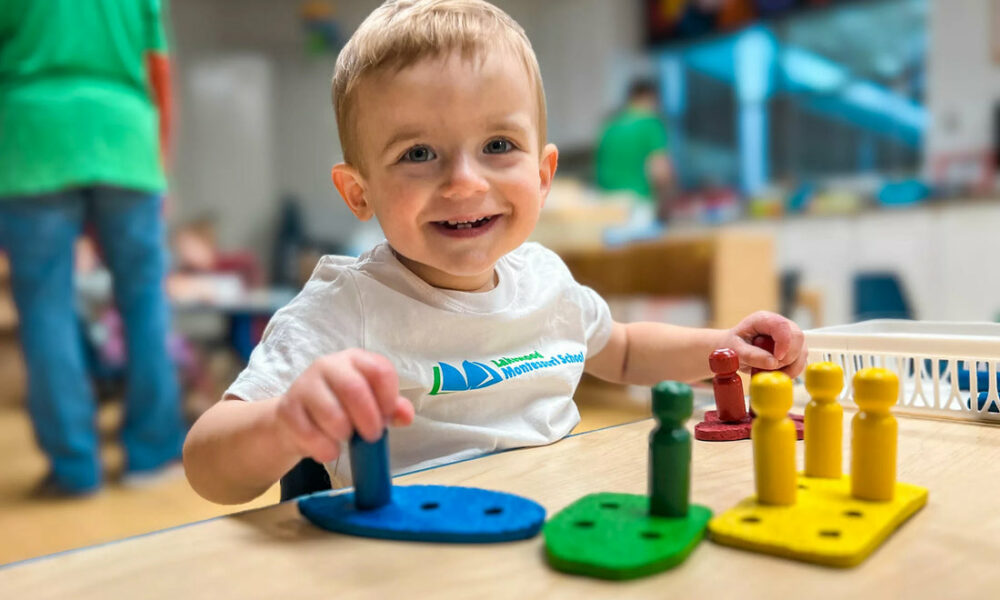Montessori Toys: Unlocking a World of Learning Through Play

Montessori toys are more than just playthings—they are the gateway to a world where learning happens naturally, fostering creativity, independence, and cognitive growth in children. Imagine walking into a room filled with toys that not only entertain but also educate. Each toy is carefully designed to engage a child’s senses, encourage exploration, and nurture their innate curiosity. These are not just toys—they are tools for life. As we delve into the fascinating world of Montessori toys, you’ll discover how these simple yet profound objects can shape a child’s development in ways that are both remarkable and enduring.
The Philosophy Behind Montessori Toys
To understand the significance of Montessori toys, it’s essential to first grasp the philosophy that underpins them. Developed by Dr. Maria Montessori in the early 20th century, the Montessori method is based on the belief that children learn best in an environment that allows them to explore and discover at their own pace. This educational approach emphasizes self-directed activity, hands-on learning, and collaborative play. Montessori toys are designed with these principles in mind, focusing on simplicity, purpose, and the natural stages of child development.
Why Montessori Toys Stand Out
One might wonder, what sets Montessori toys apart from the myriad of other toys available on the market? The answer lies in their simplicity and intention. Unlike many conventional toys that are brightly colored, flashy, and often overwhelming, Montessori toys are typically made from natural materials like wood, fabric, or metal. These toys are free of distractions, allowing children to focus on one task at a time, thereby enhancing concentration and attention to detail. They are often open-ended, meaning there’s no right or wrong way to play with them. This open-endedness fosters creativity and encourages problem-solving skills as children figure out how to interact with the toys in their own unique way.

The Role of Montessori Toys in Cognitive Development
Montessori toys are meticulously designed to align with the developmental needs of children. Each toy serves a specific purpose, whether it’s enhancing fine motor skills, developing hand-eye coordination, or building cognitive abilities such as memory, classification, and critical thinking. For example, stacking blocks might seem like a simple activity, but it teaches children about balance, geometry, and spatial awareness. Similarly, puzzles help develop problem-solving skills and improve concentration, as children work to piece together parts to form a whole.
Montessori Toys and Emotional Growth
Beyond cognitive development, Montessori toys play a crucial role in fostering emotional growth. The independence that these toys encourage allows children to build confidence in their abilities. When a child successfully completes a puzzle or constructs a tower, they experience a sense of achievement, which boosts their self-esteem. Moreover, because Montessori toys often involve tasks that require patience and persistence, children learn the value of perseverance and develop resilience in the face of challenges.
Encouraging Independence Through Play
One of the core tenets of Montessori education is promoting independence. Montessori toys are designed to empower children to make their own choices and learn from their experiences. For instance, a Montessori-inspired play kitchen allows children to mimic real-life activities, such as cooking or cleaning, in a way that’s safe and manageable. By engaging in these activities, children learn practical life skills and develop a sense of responsibility. This independence is further reinforced by the Montessori approach to the play environment, which is often organized in a way that allows children to access toys and materials without adult assistance. This freedom to choose what to play with and how to play with it fosters a sense of autonomy and encourages self-directed learning.
The Sensory Appeal of Montessori Toys
Montessori toys are designed to engage a child’s senses, which is a critical aspect of their development. The textures, weights, and shapes of these toys offer a tactile experience that stimulates sensory learning. For instance, a set of wooden blocks not only teaches a child about shapes and sizes but also offers a sensory experience as the child feels the smoothness of the wood and the weight of each block. Similarly, Montessori toys that produce sound, like a simple xylophone, help children develop auditory skills while also introducing them to the concept of cause and effect.
The Environmental Aspect: Montessori Toys and Sustainability
In an age where sustainability is increasingly important, Montessori toys stand out for their eco-friendly attributes. Made from natural, durable materials like wood and cotton, these toys are often crafted to last for years, reducing the need for frequent replacements. This longevity not only makes them environmentally friendly but also means they can be passed down from one child to another, carrying with them a legacy of learning and play. Additionally, the simplicity of Montessori toys means they are often free from harmful chemicals and synthetic materials, making them safer for children and better for the planet.
How Montessori Toys Foster Creativity
Creativity is a hallmark of childhood, and montessori toys for 1 year old are designed to nurture this natural trait. By providing children with open-ended materials—such as building blocks, art supplies, or simple musical instruments—Montessori toys encourage children to use their imagination and think outside the box. For instance, a set of wooden blocks can become a castle, a bridge, or even a robot, depending on where the child’s imagination takes them. This type of play not only fosters creativity but also enhances problem-solving skills, as children figure out how to bring their ideas to life.
Montessori Toys and Social Skills Development
While Montessori toys are often associated with independent play, they also play a vital role in developing social skills. Many Montessori toys are designed for collaborative play, encouraging children to work together to solve problems or build something collectively. This type of play teaches children important social skills such as sharing, taking turns, and communicating effectively. For example, a group of children might work together to build a structure using a set of blocks, negotiating roles and discussing ideas, which helps them develop their ability to collaborate and work as a team.
Addressing the Myths: Common Misconceptions About Montessori Toys
Despite their many benefits, Montessori toys are sometimes misunderstood. One common misconception is that they are too simple or boring for children accustomed to high-tech, interactive toys. However, the simplicity of Montessori toys is intentional, designed to promote deep concentration and independent learning rather than passive entertainment. Another myth is that Montessori toys are only suitable for certain age groups or learning styles. In reality, these toys are highly adaptable and can be beneficial for children of various ages and developmental stages. Additionally, some believe that Montessori toys are only for children who attend Montessori schools, but they are actually valuable tools for any child, regardless of their educational background.
The Cost Factor: Are Montessori Toys Worth the Investment?
When considering the purchase of Montessori toys, parents might wonder if they are worth the investment, especially since they can be more expensive than conventional toys. While it’s true that Montessori toys often come with a higher price tag, the value they provide in terms of child development, sustainability, and durability often justifies the cost. These toys are designed to grow with your child, offering different learning opportunities at various stages of development. Additionally, their durability means they are likely to outlast cheaper, mass-produced toys, making them a wise investment in the long run.
Montessori Toys for Different Developmental Stages
Montessori toys are tailored to meet the developmental needs of children at different stages. For infants, toys that stimulate the senses—such as rattles or soft fabric books—are ideal for promoting sensory exploration and fine motor skills. As children grow into toddlers, toys that encourage movement and coordination, such as stacking rings or push toys, become more appropriate. For preschoolers, Montessori toys often focus on more complex skills like problem-solving, classification, and creativity. This might include puzzles, building sets, or art supplies. Each stage of development is supported by toys that are designed to be both educational and engaging, ensuring that children are always challenged and stimulated in a way that’s appropriate for their age.
Integrating Montessori Toys into Everyday Life
Incorporating Montessori toys into your child’s daily routine can be a simple and rewarding process. One effective strategy is to create a dedicated play space where Montessori toys are easily accessible. This area should be organized, with toys arranged in a way that encourages exploration and independent play. Rotating toys on a regular basis can also help keep your child engaged and interested, preventing overstimulation while offering new learning opportunities. Additionally, involving your child in everyday activities, such as cooking or gardening, with the help of Montessori-inspired tools, can extend the Montessori philosophy beyond the playroom and into all aspects of life.
How to Choose the Right Montessori Toys
Selecting the right Montessori toys for your child involves considering their age, interests, and developmental needs. Look for toys that are made from natural materials, as these are more likely to offer the sensory experiences that are central to Montessori learning. Choose toys that are simple and open-ended, allowing for multiple uses and creative play. It’s also important to consider your child’s current developmental stage. For younger children, focus on toys that promote basic skills like grasping, stacking, and sorting. As your child grows, introduce toys that challenge their cognitive abilities and encourage imaginative play.
Montessori Toys and the Digital Age: Striking a Balance
In today’s digital age, where screens dominate much of children’s playtime, Montessori toys offer a refreshing alternative. These toys encourage children to step away from screens and engage in tactile, hands-on play that promotes deep learning and concentration. However, it’s important to strike a balance. While Montessori toys are invaluable for child development, digital tools can also offer educational benefits when used appropriately. The key is to ensure that screen time is balanced with plenty of opportunities for physical





